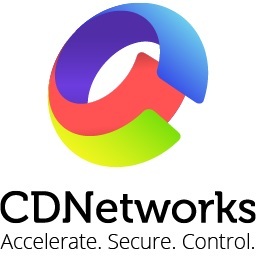SAN JOSE, California, March 30, 2015 /PRNewswire/ -- Founded in 2000, Thomsons Online Benefits is the business behind Darwin™, the leading software for global employee benefits administration. Serving the large enterprise market, Thomsons' Darwin™ platform manages employee benefits, pensions and rewards in over 70 countries and 18 languages around the globe. With Darwin's surging popularity among globally dispersed enterprises, the company enjoyed substantial growth in its international user base, particularly throughout Asia. Thomsons wanted to deliver a leading edge experience to users across the Globe. "Latency was in the 300's, which was impacting the end user experience," says Mark Kay, Head of Technology Services at Thomsons Online Benefits. "With such a business critical service as Darwin we wanted to put in place a service that would deliver a faster and more secure solution."
Logo - http://photos.prnewswire.com/prnh/20150113/168905LOGO
Challenge: Securing Customer Data while Delivering a Local Level of Performance
Thomsons had expanded their datacenter presence beyond their main UK facility with a second datacenter in Hong Kong. This gave them great expectations of strong application and website performance across the globe. But issues with mainland China's Internet infrastructure and data security in Hong Kong had Kay's team concerned. Many of Thomsons' large enterprise customers had significant user volumes in mainland China. Not only was the Great Chinese Firewall slowing Darwin's performance there, Hong Kong's fading independence from mainland China put the security stance of the Hong Kong datacenter at risk. "As managers of sensitive employee data, we take very seriously any potential threats to the security and performance of the Darwin application," says Kay.
These issues led Kay to search for ways to simultaneously deliver Darwin faster to its end users and ensure data security throughout Asia. At the same time, fast-growing user bases in the United States and other western nations had Kay's team considering the establishment of two additional datacenters, bringing them to four locations. However, while seeking a new solution for their website and application delivery, they recognized a need for consolidated operations. The Darwin platform actually involves two standard applications. "Managing the delivery of these on a country-by-country basis, along with country-specific eligibility rules and benefits data, put a strain on our operations," says Kay.
As Kay set about finding the ideal delivery solution, he evaluated options based on these key criteria:
1. Data security – specifically, management of SSL infrastructure
2. Performance – ability to drastically improve page download and applications speeds across Asia
3. Unified infrastructure – capability for consolidating operations around global delivery of country-specific applications and content
4. Automation – Set-and-forget features that enable automated delivery of application upgrades around the globe
5. Global Presence – Points of presence throughout the eastern and western hemispheres to support expansion across the Americas and Asia
The Solution: A Global CDN with Local Performance and Robust Security Worldwide
Recognizing the need for strong application and website performance in 70 countries, Mark Kay felt the only cost-efficient solution would be a CDN. After evaluating the short list of CDNs that are truly global, Kay settled on CDNetworks to answer the challenges facing Thomsons Online Benefits. "CDNetworks demonstrated the expertise we needed to solve the performance and security issues we faced around the world. Plus, their unified architecture enables us to automate both application delivery and SSL security," says Kay.
Kay noted that the practice of SSL offloading can cause a drag on application delivery performance, because of the need to continuously verify certificates. "We were attracted to the way CDNetworks can keep the SSL certificate in the network," he adds. "This provides significant performance improvements for end users, particularly those in farther away from the UK data center."
The automation features that CDNetworks supports will help Thomsons grow their business in the most cost-efficient manner possible. "Automated push of new application features over CDNetworks' unified architecture brings upstream value to our business," notes Kay. "We can be agile against our much larger competitors, without dramatically increasing the size of our technical team."
The Results: Faster, More Secure Performance at Lower Cost
Mark Kay's Technology Services team implemented the CDNetworks global CDN in just one week. Almost immediately, Asia-based users of the Darwin application enjoyed 90 percent increases in page download and application response times. "We went to having a competitively differentiated user experience almost overnight," explains Kay. With the performance and security issues solved, Thomsons has confidently targeted more large enterprises for global benefits administration. In fact, the company now counts 7 of the top 10 technology companies as customers using the Darwin platform. Despite major increases in their business and global user base, Thomsons has successfully consolidated operations down to a single datacenter located in the UK. "We never could have consolidated like this without CDNetworks," says Kay. Moving from a four-datacenter plan to just one provides efficiencies on multiple fronts. Hosting fees from one location are far less than those from four locations. Country-specific technology rollouts have stopped, saving valuable staff hours for use on revenue-generating projects. Additionally, Thomsons has centralized ongoing administration of application updates to end users in all 70 countries.
Recent unrest in Hong Kong has further validated Kay's decision to leverage CDNetworks for application delivery into mainland China. "I think we'll see more companies, particularly those with sensitive data, begin to rethink their near-China hosting strategy," says Kay. "CDNetworks simply minimizes the risk by shifting around resources and delivery points in response to current conditions."





Share this article